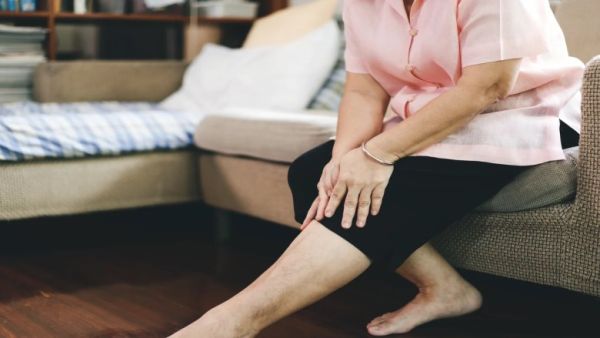
With the onset of menopause, the density of bones i.e. thickness starts decreasing. Even after menopause, it continues to decrease. The biggest reason for this is the lack of estrogen hormone in the body. The risk of osteoporosis also increases due to its reduction.
Menopause Bone Health: A woman goes through many stages of hormonal change during her lifetime. The last stop of this can be called menopause i.e. menopause. Menopause usually starts in women at the age of 45 to 50 years. At what age menopause comes, it depends largely on your jeans, health and lifestyle. During menopause, fertility hormones such as estrogen in the body of women begin to decrease. In such a situation, menopause also brings a box of many problems with them. Weight gain, mood swings as well as it affects women’s bones and muscles to a great extent. With a little effort, you can protect yourself from these side effects.
That’s why bones are affected
With the onset of menopause, the density of bones i.e. thickness starts decreasing. Even after menopause, it continues to decrease. The biggest reason for this is the lack of estrogen hormone in the body. The risk of osteoporosis also increases due to its reduction. In osteoporosis, the thickness of bones begins to decrease so much that it starts to break easily. Research suggests that in the first five years of menopause, the density of bones of women decreases by 10%. If not paying attention to time, this figure is afraid of reaching 25%. This is the reason that one of almost every 2 women who cross the age of 60 are at risk of osteoporosis.
Take necessary steps in time
By taking some precautions, you can live a healthy life even after menopause. Just you have to take care of your bones and muscles health. Every woman must get a dexa scan after menopause. This test tested the density of your bones. After this test you are given a T-score, on the basis of which the density of bones is detected. However, healthy lifestyle can risk both osteopenia and osteoporosis.
Focus on calcium and vitamin D
Calcium and vitamin D are two elements with the help of which you can improve the health of your bones. After menopause, every woman should aim to eat about 1300 mg of calcium per day. Dairy products, almonds, tofu, nuts, green leafy vegetables, fish etc. are good sources of calcium. You should include all these in your daily diet. Along with this, vitamin D is also necessary for your bones and muscles. With its help, the body is able to easily absorb calcium. Therefore, you should consume sunlight every day. Spend 15 minutes in the morning in the sun. You can also take vitamin D supplements.
Improve lifestyle
You can also reduce menopause after changes in lifestyle. Pay attention to your fitness. Do exercise and yoga regularly. Remove at least 30 minutes a day for yourself. Exercises like walking, running, stairs climbing, rope jumping, dance, aerobics, pushups, squat are best. Also, distance away from alcohol, smoking, tea, coffee etc. You can also take menopaazal hormonal therapy. This can prevent bones loss.
-
Anbumani Ramadoss Says Expulsion Invalid, Continues Party Work Amid PMK Turmoil

-
PM Modi To Visit Assam, Release Coin To Honour Bhupen Hazarika And Unveil Projects Worth Over Rs 19,000 Cr

-
92% Indians Prefer Instagram Reels Over YouTube Shorts: Report

-
BSSC Field Assistant Answer Key 2025 Issued; Check Details Here

-
Jadavpur University Tragedy: Third-Year Student Found Dead In Campus Pond Under Mysterious Circumstances
